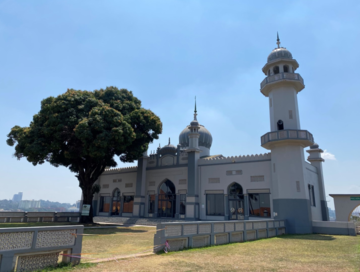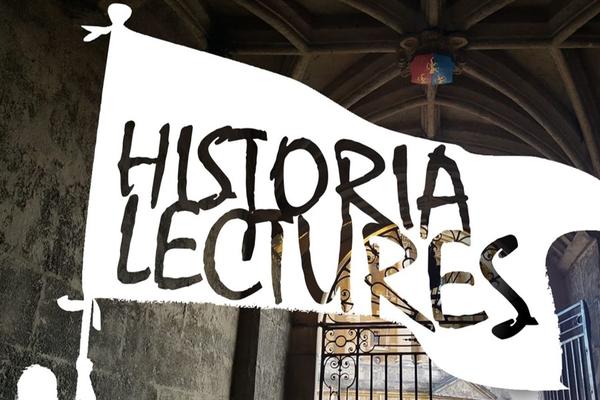Islam in Sub-Saharan Africa
Islam in Sub-Saharan Africa holds a distinct place in the wider historiography of Muslim communities and Islam more broadly. In this region, the study and understanding of Islam has long been impacted by a racialized dynamic. My research focuses on the Muslim community in southern Uganda, in the Kingdom of Buganda. I focus on the themes of community building and leadership, political collaborations, and education to understand how the Ganda Muslim community experienced the colonial period (ca. 1900 – 1962). My methodology relies on archival work and oral history interviews which were conducted with elder members of the Ganda Muslim community in the summer of 2021. Additionally, through the study of this community and their experiences, my work seeks to dismantle the ideas surrounding terminology such as the ‘Africanization’ of Islam. My work helps to illustrate that neither Islam, nor Africa, are monoliths and that the terminology which historians use needs to evolve to reflect this fact.

Kibuli Mosque, Kampala
From 1890 to 1921, the Ganda Muslim community was led by Omulangira[1] Nuhu Mbogo. Nuhu Mbogo led the community through Buganda’s tumultuous colonization process and his efforts had a direct impact on the very survival of the community at the turn of the twentieth century. His actions as leader of the Ganda Muslims secured the community a distinct, protected position in colonial Buganda. The achievements of Mbogo were continued by the leadership of Mbogo’s son, Omulangira Badru Kakungulu. Following Mbogo’s death, the Ganda Muslim community split, but Kakungulu led the most populous group from 1921. Kakungulu’s most notable achievements for his community were in the development of educational facilities for the Ganda Muslims and the continued nurturing of relationships between the Ganda Muslims and the other politically powerful groups in colonial Buganda, such as the Protestant community. During Kakungulu’s tenure, the practice of Islam in Buganda evolved, changing in notable ways on more than one occasion and illustrating the diverse nature of Islam within this kingdom. This evolution of Islam is also revealing of the wider community’s experiences of the colonial period. Though much of my research does focus on elites, certain themes, such as evolving Islamic practice, provide a window into the broader, communal experience of colonialism amongst the Ganda Muslims.
The political work of the Ganda Muslim community was crucial to their survival and development throughout the colonial period. Though the political work of the community was primarily undertaken by its leaders, such as Mbogo and Kakungulu, it was a more encompassing issue, in which other elite Ganda Muslims, such as Abdallah Ssekyimanyi, were engaged. The ability of the Ganda Muslim community to create and maintain political relationships with the Protestant and Catholic Ganda communities, as well as the colonial state, was crucial to the developments they were able to achieve during the colonial period. Furthermore, this community was also aided by the international relationships which it built and nurtured during the colonial period. Thus, the political undertakings of the community and its leaders are an important aspect of understanding the overall Ganda Muslim experience of the colonial period.
The final theme that my research focuses on is the education of the Ganda Muslim community during the colonial period. Mission schools were essentially the educational institutions of the colonial state, especially in the first several decades of the twentieth century. This meant that to attend school, one had to convert to Christianity. The oral history interviews conducted for this study revealed that forced conversion was a common practice across mission schools in colonial Buganda. For the Muslim community, this meant that educational opportunities were limited. The colonial state knew about this issue, and purposefully ignored it, wishing to limit educational opportunities to a small, elite, Christian population in Buganda. Despite the colonial state’s neglect of the Ganda Muslim’s education, the community found their own routes to educational attainment, founding their own schools and working with other organizations, such as the East African Muslim Welfare Society (EAMWS), to create their own opportunities.
By focusing on the themes of community, politics, and education, my research seeks to illustrate not only the ways in which the Ganda Muslims were marginalized by the colonial state, but to also show how they developed their own ways forward. Despite continued discrimination, the Ganda Muslims grew their communities, evolved their understanding and practice of Islam, built their own schools and mosques, and created influential political relationships. The Ganda Muslim experience of the colonial period was not straightforward, and differed depending on which part of the community one belonged to. Despites these nuances, this experience can be understood through the community’s continued resistance against marginalization motivated by the racial and religious biases of the colonial state that controlled their kingdom.
-- Brenda McCollum
[1] This is the Luganda term for prince. Nuhu Mbogo and his son were both members of the Ganda royal family, which directly aided their ability to effectively lead the Ganda Muslim community.




